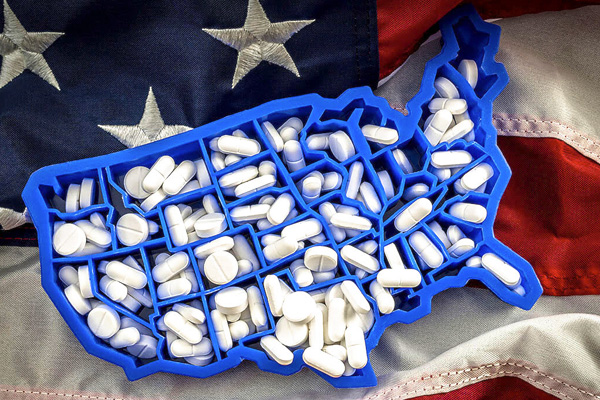MORE BAD NEWS –
Feb. 20. 2021 – Drug overdoses of all kinds killed nearly 84,000 people in the U.S. from August 2019 to July 2020. That’s 23% more than in the previous 12-month period, and the highest number of overdose deaths ever recorded in a single year. Opioids accounted for more than 61,000, or 73%, of those deaths. Chelsi Cheatom, program manager at Trac-B Exchange, a Las Vegas-based safe-needle program, says she expected to see demand drop during the pandemic because of public transportation cuts and calls for people to shelter in place. The reality was the opposite: “We have a line outside of our door,” she says.On the campaign trail, Joe Biden proposed a $125 billion investment in prevention of substance abuse, treatment, and recovery, to be paid over 10 years with taxes on the pharmaceutical industry. For the president, after all, it’s personal: He has talked openly about his son Hunter’s struggle with addiction, tying the issue to mental health rather than a flawed character. A March 2020 Government Accounting Office report on drug misuse appeared to call out both the Obama and Trump administrations for inaction, noting that it had made more than 80 recommendations since 2015 to multiple agencies responsible for addressing the drug crisis—of which more than 60 had yet to be implemented. In 2017, Trump appointed an opioid commission, led by former New Jersey Governor Chris Christie, and declared the opioid crisis a national public health emergency. By December of that year, the commission was disbanded. The Trump administration also tried to cut the Office of National Drug Control Policy’s budget by 95% and ultimately left oversight of the issue to senior counselor Kellyanne Conway.“If what we’ve been doing was working, we wouldn’t be where we’re at right now with overdose deaths,” says Ryan Hampton, who helped develop addiction policy for Biden’s campaign as a volunteer and is himself in recovery for opioid addiction.



